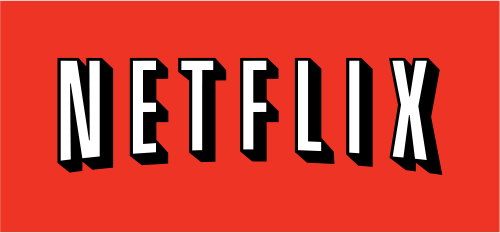Netflix Inc.’s (NASDAQ: NFLX) video streaming service consumes a huge amount of broadband. No wonder. Video data takes up more network capacity than text or voice. And Netflix has more than 20 million U.S. customers, who at peak hours represent more than 30% of all Internet traffic.
Netflix CEO Reed Hastings wants broadband providers like AT&T Inc. (NYSE: T) to build infrastructure to handle his service, and handle it without the need to charge his customers more money to stream the new files. AT&T management made it clear that Hasting’s request was one it will not support. As a matter of fact, the telecom company will fight it.
AT&T Senior Executive Vice President-External and Legislative Affairs Jim Cicconi wrote in a company blog on Friday:
I saw Reed Hasting’s blog yesterday from Netflix asserting in rather dramatic fashion (with diagrams) that ISPs should build facilities (he said provide, but those facilities have to be built) to accept all of Netflix’s content — indeed all of the content on the Internet – without charge. Failure to do so, according to Mr. Hastings, was a violation of “strong net neutrality rules” and bad public policy. I thought it might be helpful to unpack those assertions so we could get right down to the core of Netflix’s rather radical proposition — that people who don’t subscribe to Netflix should nonetheless pay for Netflix.
Put another way, AT&T should not be forced to create an infrastructure to support Netflix because it does not want to sharply raise rates to its subscribers to offset the cost of building the system. If Netflix needs that system, it, and not AT&T or its customers need to foot the bill.
Hastings’ argument is that the Internet is essentially a democracy:
The Internet is improving lives everywhere — democratizing access to ideas, services and goods. To ensure the Internet remains humanity’s most important platform for progress, net neutrality must be defended and strengthened.
The essence of net neutrality is that ISPs such as AT&T and Comcast don’t restrict, influence or otherwise meddle with the choices consumers make. The traditional form of net neutrality which was recently overturned by a Verizon lawsuit is important, but insufficient.
This weak net neutrality isn’t enough to protect an open, competitive Internet; a stronger form of net neutrality is required. Strong net neutrality additionally prevents ISPs from charging a toll for interconnection to services like Netflix, YouTube, or Skype, or intermediaries such as Cogent, Akamai or Level 3, to deliver the services and data requested by ISP residential subscribers. Instead, they must provide sufficient access to their network without charge.
Democracy or not, the battle is one over what companies should pay for the future of an Internet that will need to carry much more data.
Upgrades will cost companies like AT&T, Verizon Communications Inc. (NYSE: VZ) and cable companies like Time Warner Cable Inc. (NYSE: TWC) billions of dollars which they likely will not be able to recoup from their customers in the form of higher fees. If the ISPs are required to build this infrastructure, they will incur losses that would crippled their businesses for years.
On the other hand, if Netflix must pay for some portion of the upgrades, it also may not be able to pass those costs along to its subscribers either.
The debate is really not over net neutrality. It is, in fact, over money.
100 Million Americans Are Missing This Crucial Retirement Tool
The thought of burdening your family with a financial disaster is most Americans’ nightmare. However, recent studies show that over 100 million Americans still don’t have proper life insurance in the event they pass away.
Life insurance can bring peace of mind – ensuring your loved ones are safeguarded against unforeseen expenses and debts. With premiums often lower than expected and a variety of plans tailored to different life stages and health conditions, securing a policy is more accessible than ever.
A quick, no-obligation quote can provide valuable insight into what’s available and what might best suit your family’s needs. Life insurance is a simple step you can take today to help secure peace of mind for your loved ones tomorrow.
Click here to learn how to get a quote in just a few minutes.
Thank you for reading! Have some feedback for us?
Contact the 24/7 Wall St. editorial team.

